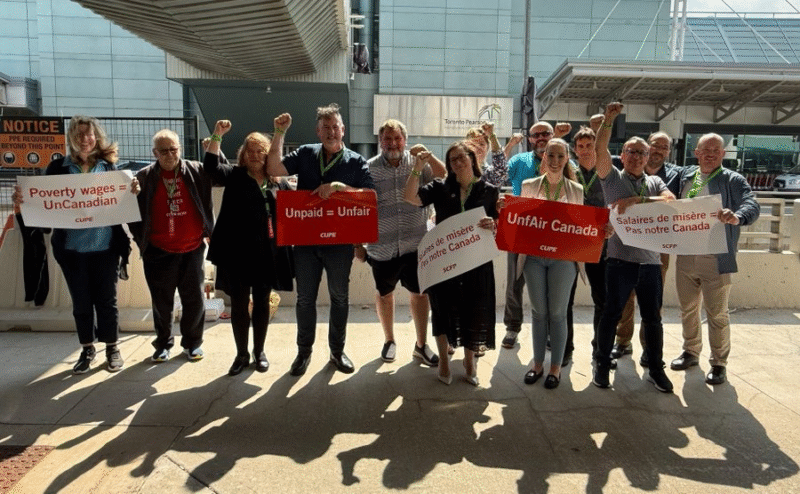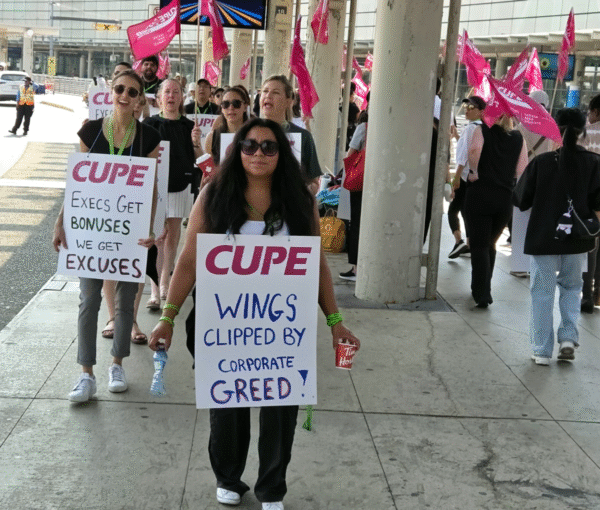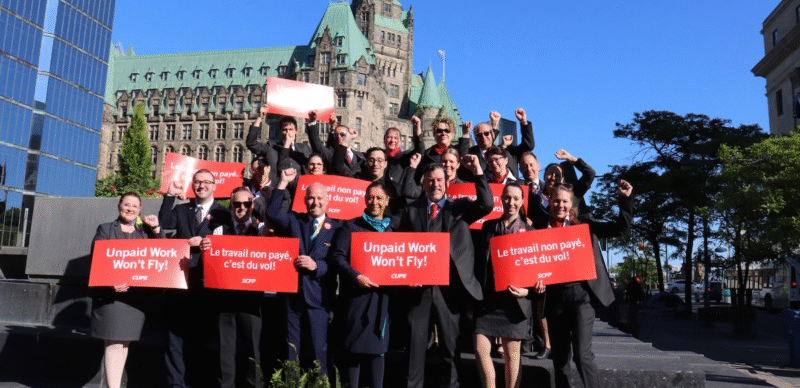Report by Kamgar Ekta Committee (KEC) correspondent

In the early hours of 16 August 2025, 10,000 Air Canada flight attendants walked out of work, beginning a 72-hour strike. Their main demand is fair remuneration for “ground work”—i.e., work done before takeoff and after landing—which is currently unpaid.
The airline Air Canada and the Canadian Union of Public Employees (CUPE) have been negotiating a new collective agreement since March 2025. According to CUPE’s figures, inflation in the country has risen by 169% over the last 25 years, while entry-level flight attendant pay has grown by only 10%. In other words, these flight attendants, most of whom are women, are earning only $3 per hour more than they did 25 years ago. Once unpaid hours are factored in, junior flight attendants at Air Canada earn less than the federal minimum wage annually, with many being forced to live in their cars and take support from food banks. In the negotiations since March, the airline has offered an insubstantial wage increase plan. CUPE said the offer is “below inflation, below market value, below minimum wage.” Earlier in August, 99.7% of union members voted in favor of a strike.
One of the main issues raised by workers is regarding their unpaid ground work. Air Canada only pays workers when they are in the air—that is, from the time the aircraft’s brakes are released at departure until the brakes are applied on arrival. Workers are not paid for vital work such as performing safety checks, attending to onboard medical and safety emergencies, and assisting passengers during boarding and deplaning. As per CUPE, this amounts to around 35 hours of unpaid work per month. For over 2 years, CUPE flight attendants across multiple airlines have been engaged in a campaign to raise awareness about unpaid work. In April 2023, they held a national day of action at airports in Montreal, Toronto, Calgary, and Vancouver, calling on airlines and the government to end unpaid work and reform labor rules.

After flight attendants served their strike notice on 13 August, Air Canada began canceling flights in anticipation of the strike. One day before the strike, the union rejected a request for arbitration from the airline. In an arbitration, the dispute between two parties is resolved by a third neutral party; the final decision is binding on both parties. However, the union recognized that no neutrality can be expected when the economy is geared towards increasing private companies’ profits.
A few hours after the strike began, the Canadian jobs minister directed the Canada Industrial Relations Board (CIRB) to force arbitration and ordered workers to return to work. The union has defied this order and bravely continued their strike, noting that the Liberal Party’s government was acting on behalf of Air Canada although it is not a public sector enterprise.
After the government order, Air Canada had started work on resuming flights. However, as the union is continuing their strike, the airline was forced to suspend efforts towards resumption. The union has pointed out that Air Canada is one of the most profitable companies and can easily afford to pay fair wages to flight attendants without raising costs of passengers.

